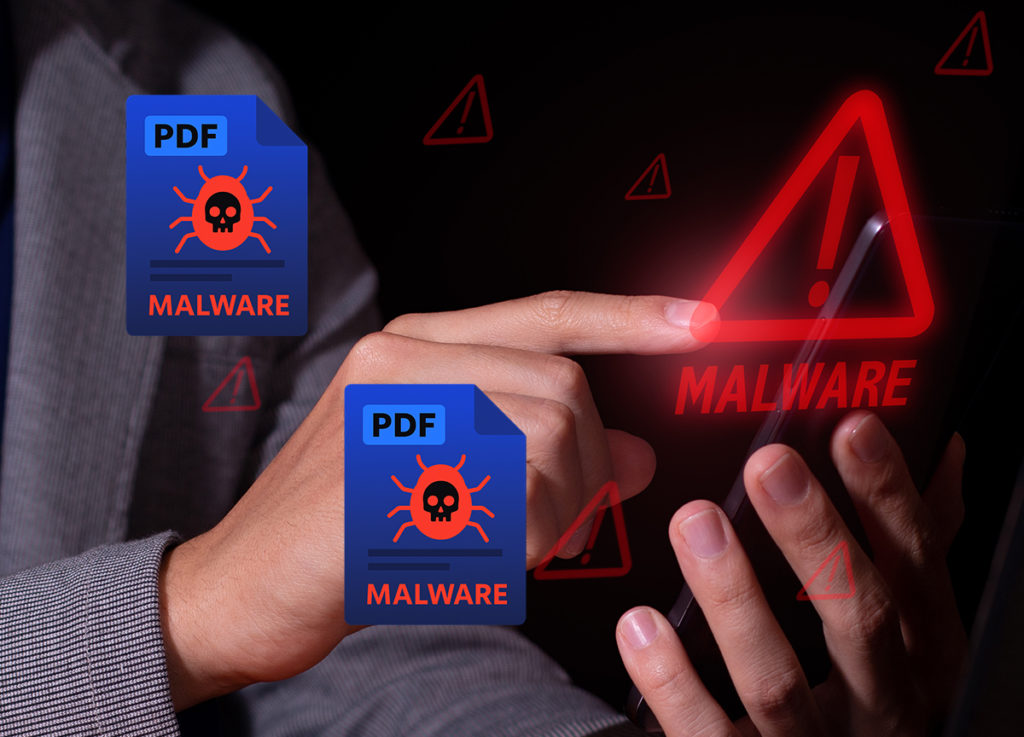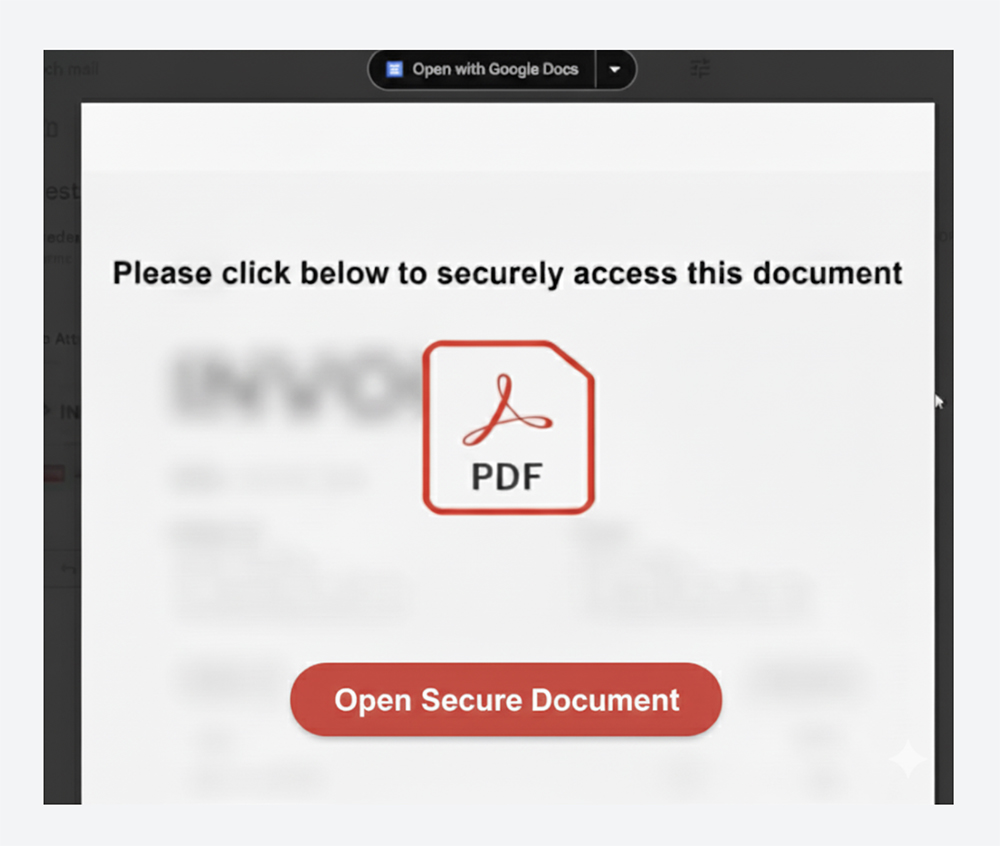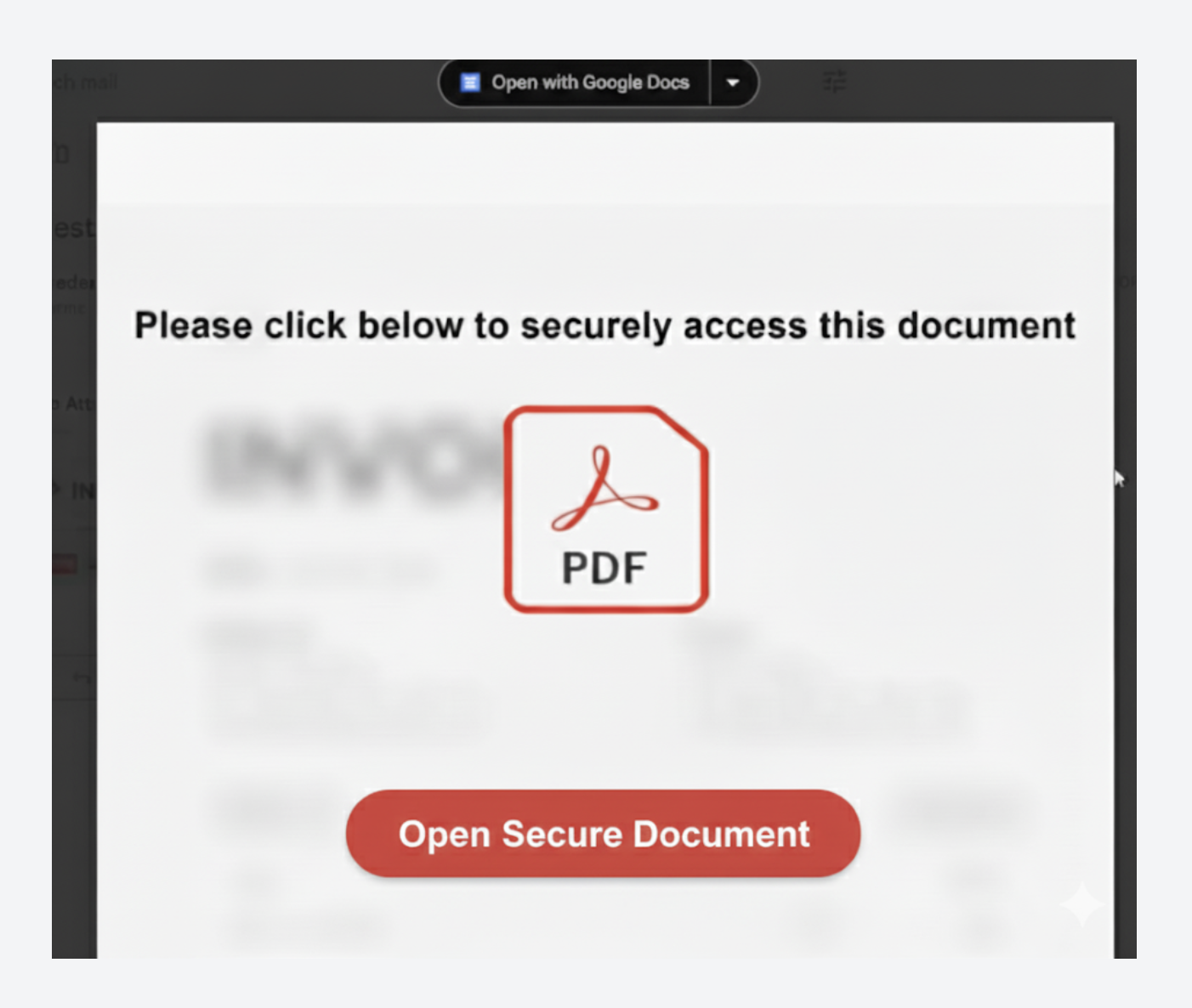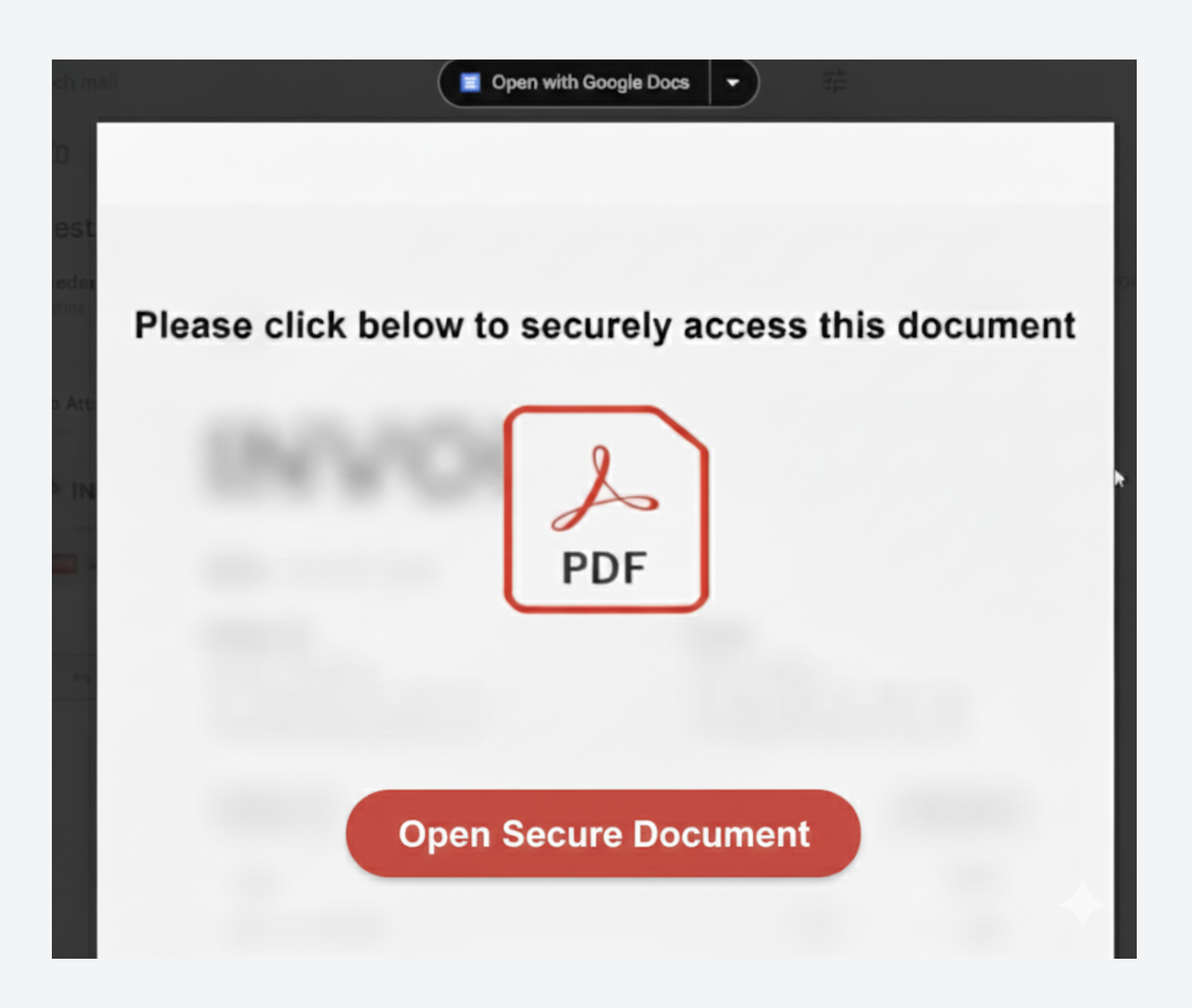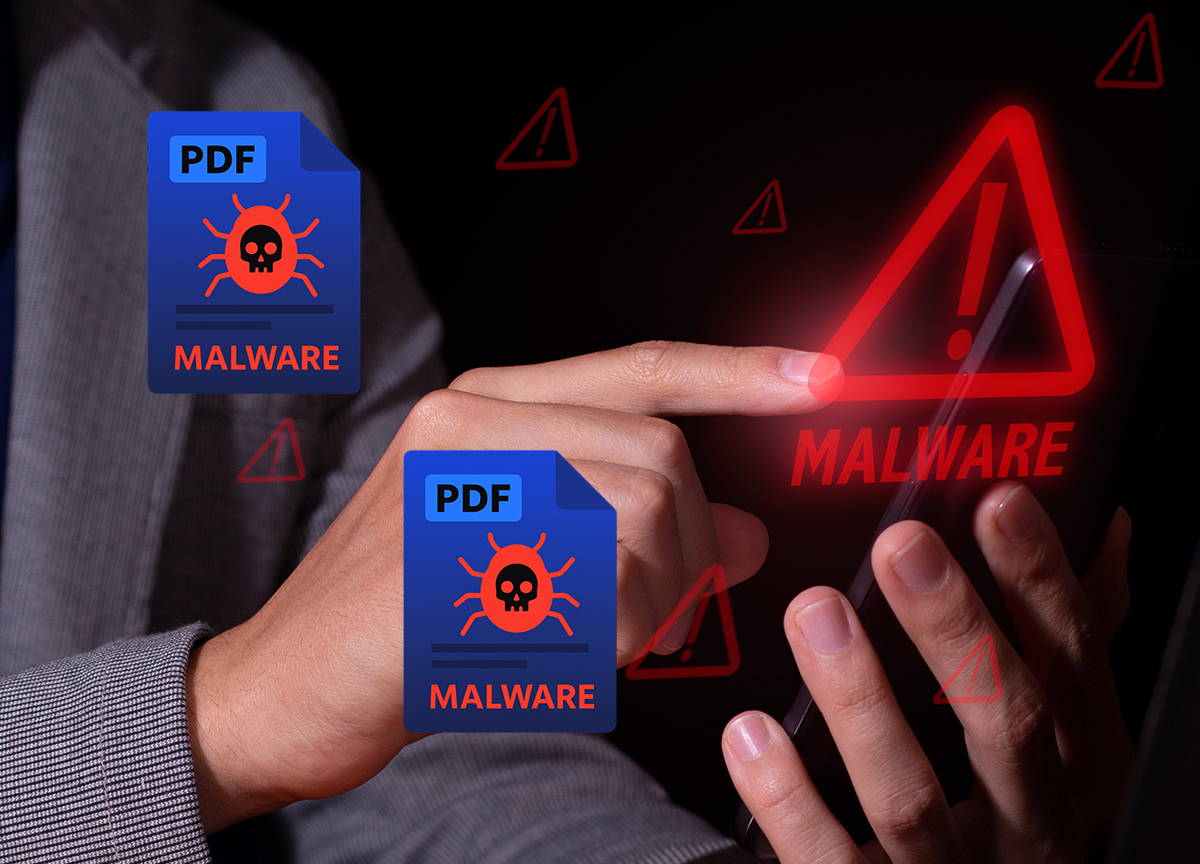PDF attachments are one of the most common ways attackers deliver phishing and malware campaigns. MatrixPDF, a new cybercrime toolkit, shows how ordinary PDF files can be weaponised to bypass Gmail security and steal credentials.
What is MatrixPDF?
MatrixPDF is a malicious PDF builder available on cybercrime forums. It transforms safe-looking PDF files into phishing and malware delivery tools. Attackers use overlays, clickable prompts, and embedded JavaScript to trick users and bypass email filters.
Instead of searching for new vulnerabilities, criminals exploit what people already trust: PDF files. PDFs slip through email gateways, render inline in Gmail, and are often opened without hesitation.
How Does the MatrixPDF Work?
The MatrixPDF toolkit allows attackers to:
- Load a legitimate PDF as bait
- Add fake security prompts or blurred overlays
- Embed malicious JavaScript actions
- Redirect victims to malware or phishing sites
To the recipient, the file looks normal. But a single click can lead to credential theft or malware infection.
Method 1: Phishing Link Redirection in Gmail
One popular attack method uses Gmail’s PDF preview. The malicious PDF renders as usual, but text may appear blurred with a fake “Open Secure Document” button.
- The button redirects to an external payload URL
- Gmail’s filters don’t block the file because it contains no binary payload
- The malware download begins outside Gmail’s antivirus sandbox
This method exploits trust in Gmail and PDF files, making the attack appear like a secure process.
Method 2: Malicious JavaScript Actions in PDFs
MatrixPDF can also embed JavaScript that executes when a PDF opens in a desktop reader like Adobe Acrobat.
- A script automatically connects to an attacker’s payload URL
- Victims see a pop-up asking for permission
- If “Allow” is clicked, the malware downloads to the device
Many users approve these prompts, believing it is required to access a secure document. This method turns PDFs into powerful delivery tools for malware.
Why PDF-Based Attacks Are Effective
PDF files are trusted by businesses and individuals alike. They are widely used for invoices, contracts, and secure documents. Cybercriminals exploit this trust, making malicious PDFs one of the most effective email attack methods today.
Stopping PDF Malware with AI-Powered Email Security
Traditional email filters struggle to detect PDF-based threats like MatrixPDF. AI-powered email security provides a stronger defence by analysing intent instead of signatures.
AI systems can:
- Detect blurred content, fake prompts, and hidden links
- Test suspicious URLs in a safe sandbox
- Analyse natural language for social engineering cues
- Block payloads before they reach Gmail inboxes
By simulating the full attack process, AI email security uncovers tactics like “Open Secure Document” lures and hidden JavaScript actions. This proactive approach ensures threats are blocked before users interact with them.
How Should Businesses Protect Themselves From the MatrixPDF?
MatrixPDF highlights how trusted file formats like PDFs are now central to phishing and malware campaigns.
Cybercriminals exploit the trust people place in documents by embedding malicious code, overlays, and deceptive prompts that bypass standard email filters. Gmail users must remain cautious, and organisations should go beyond basic security to stop these sophisticated threats before they ever reach inboxes.
To defend against MatrixPDF and similar attacks, organisations should:
- Deploy AI-powered email security – Traditional filters often miss advanced threats. AI-driven solutions detect unusual behaviours and hidden code inside PDFs.
- Educate employees on phishing tactics – Ongoing training helps staff recognise fake prompts, suspicious attachments, and unusual requests.
- Implement multi-layered defences – Combine secure email gateways, endpoint monitoring, and zero-trust access controls.
- Keep software and systems updated – Regular patching reduces vulnerabilities exploited by malicious files.
- Conduct phishing simulations – Testing employees in real-world scenarios strengthens awareness and resilience.
- Have an incident response plan – A clear playbook ensures rapid action if a malicious file slips through.
Why Proactive Cyber Security Defence Matters
MatrixPDF demonstrates that trusted tools can be weaponised overnight. Without proactive measures, businesses risk data theft, financial loss, and reputational damage.
Partner With Experts
ZENDATA provides AI-powered email protection, 24/7 threat monitoring, and tailored cybersecurity solutions designed to stop emerging attacks like MatrixPDF. Our team specialises in strengthening resilience across people, processes, and technology.
Contact ZENDATA:
Email: info@zendata.security
Click here for the original research
